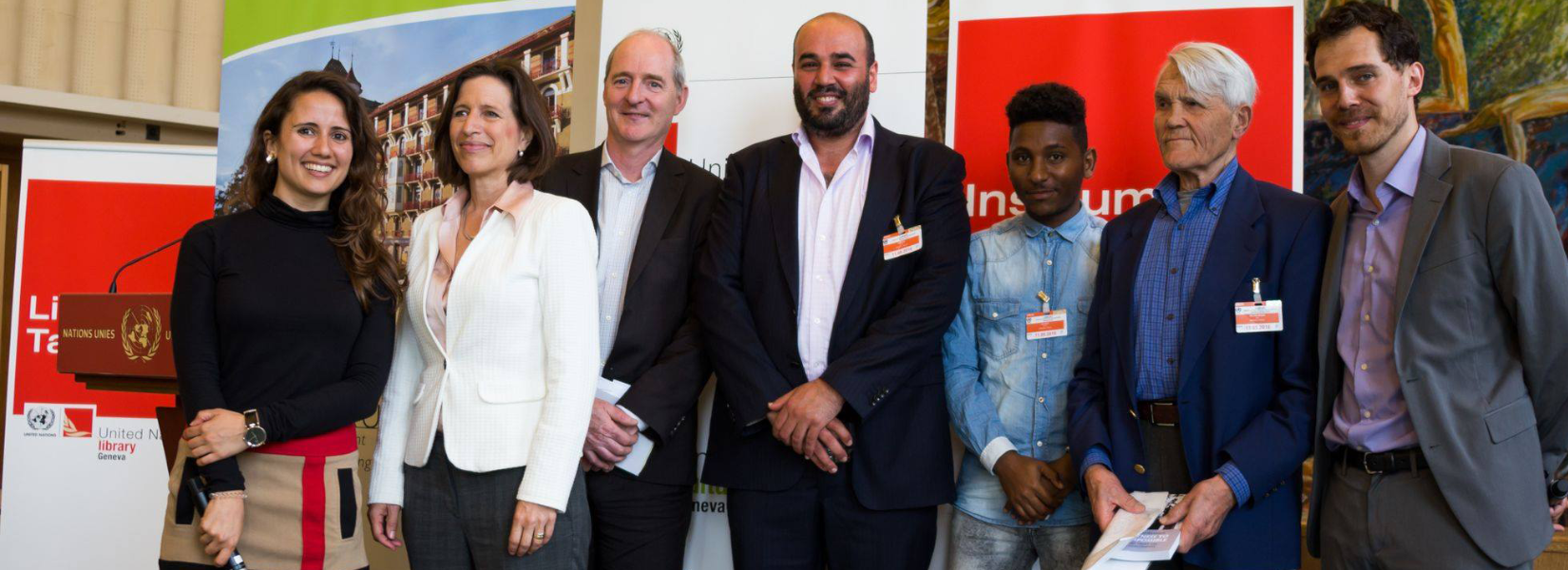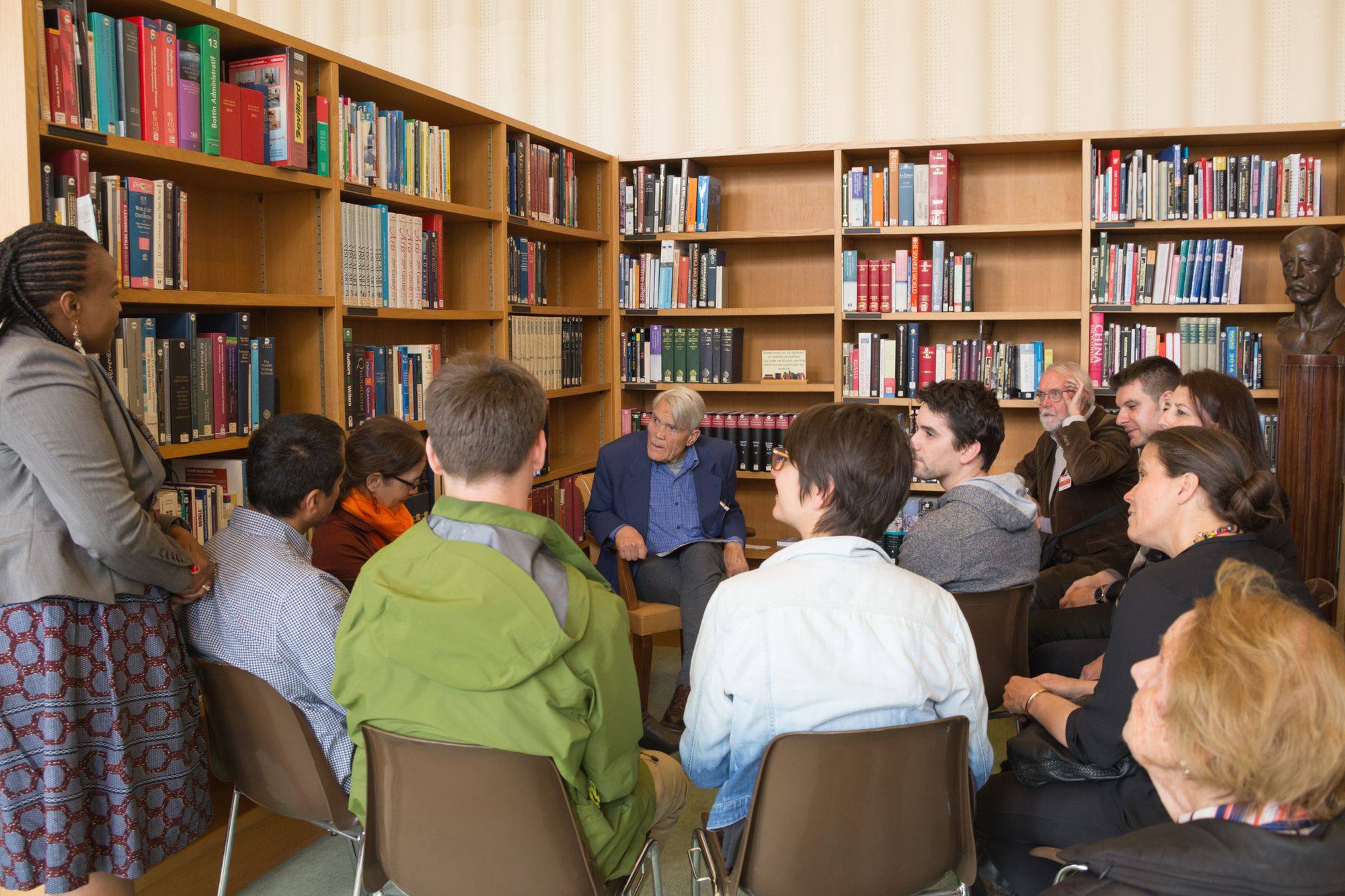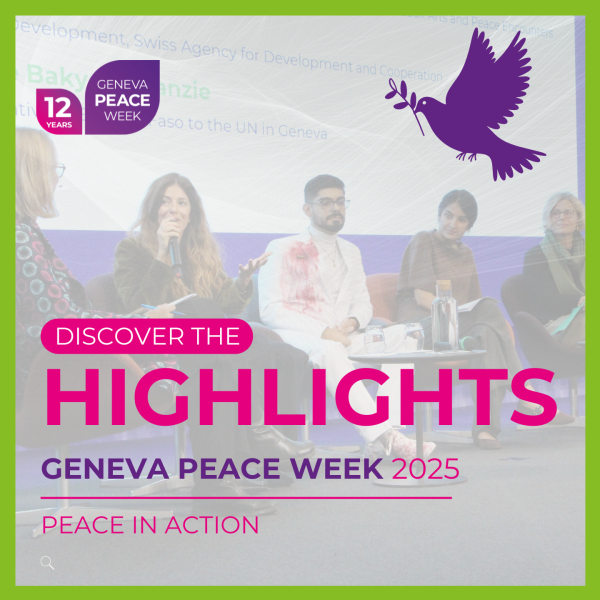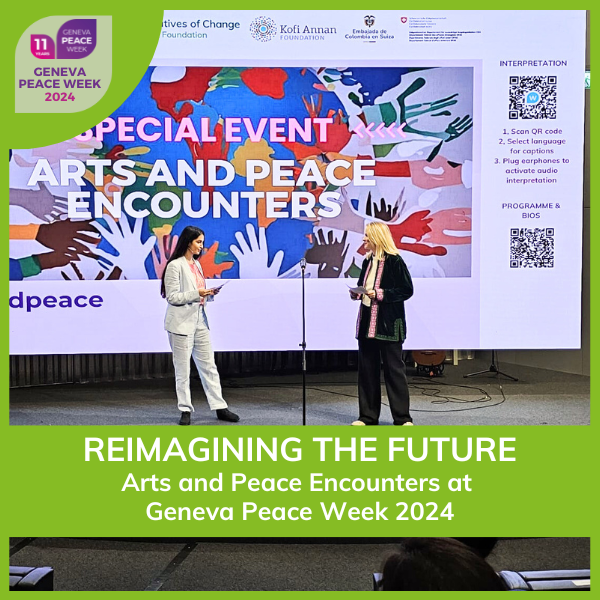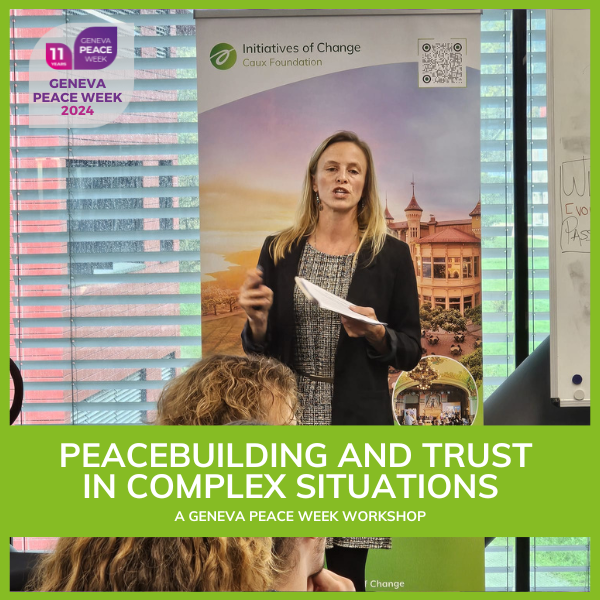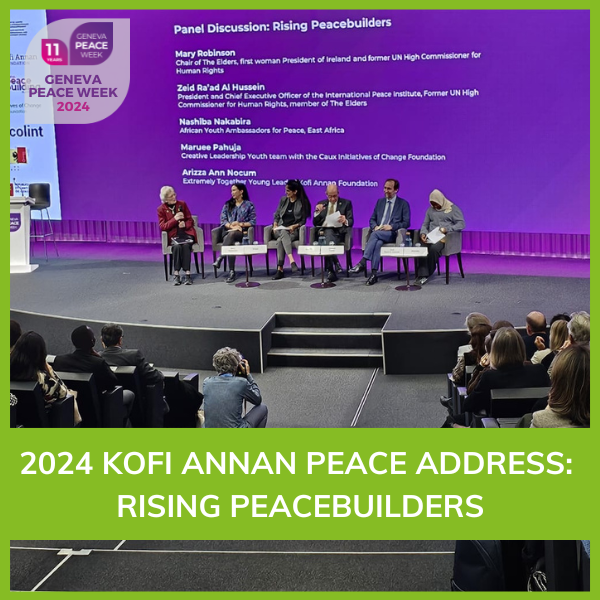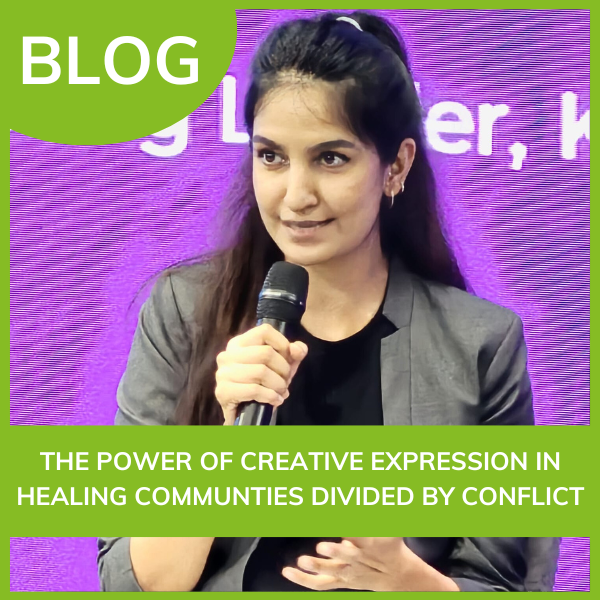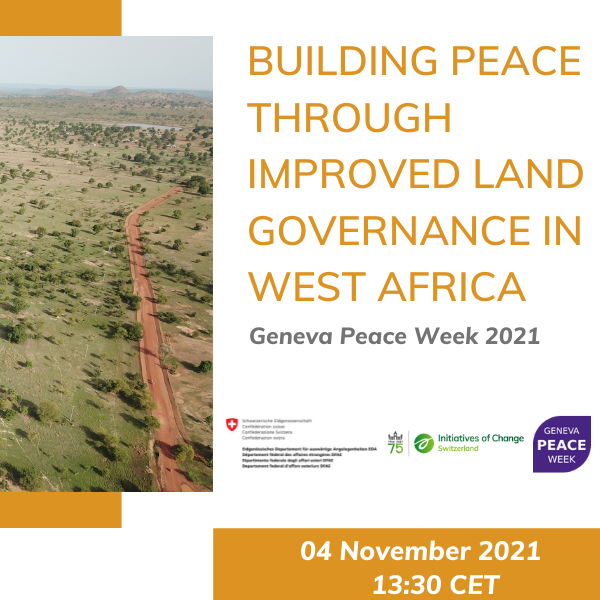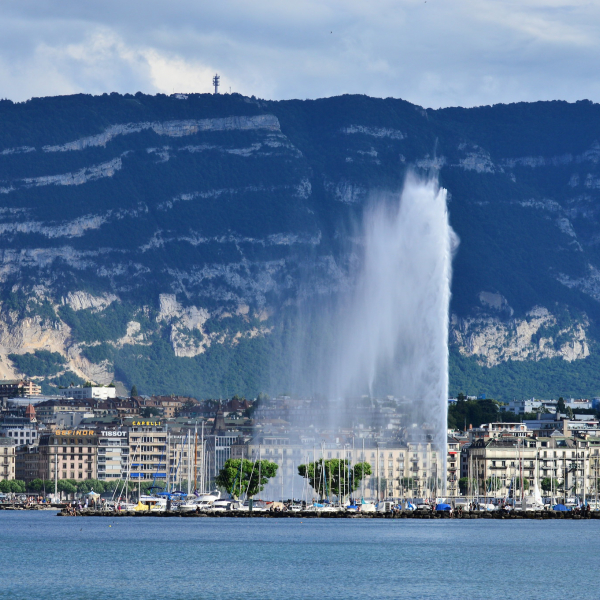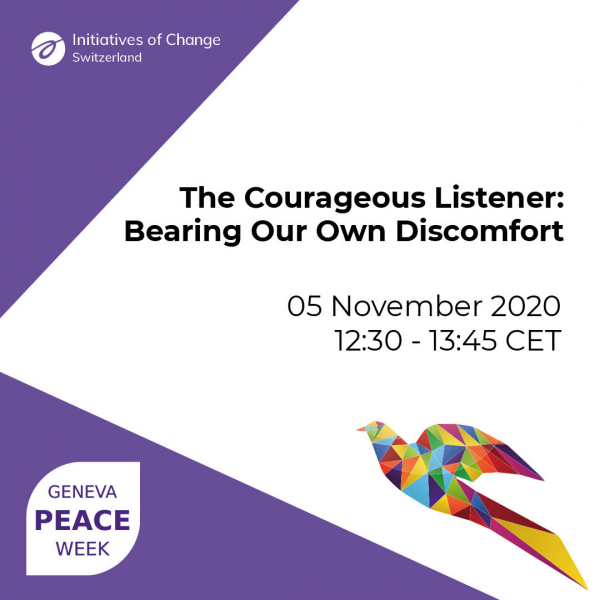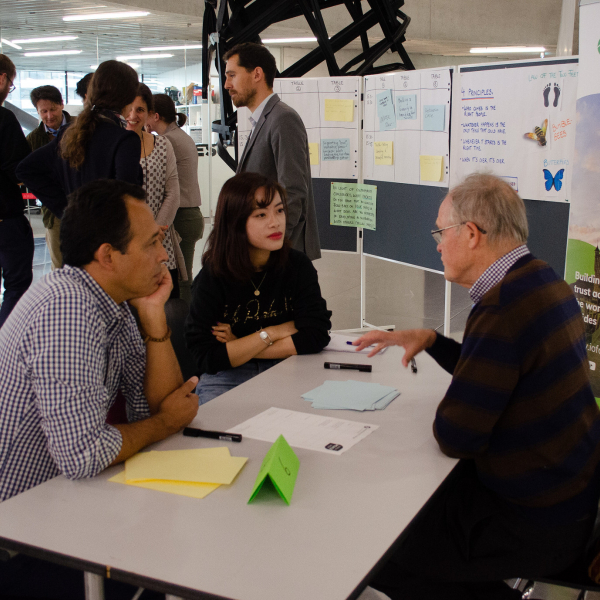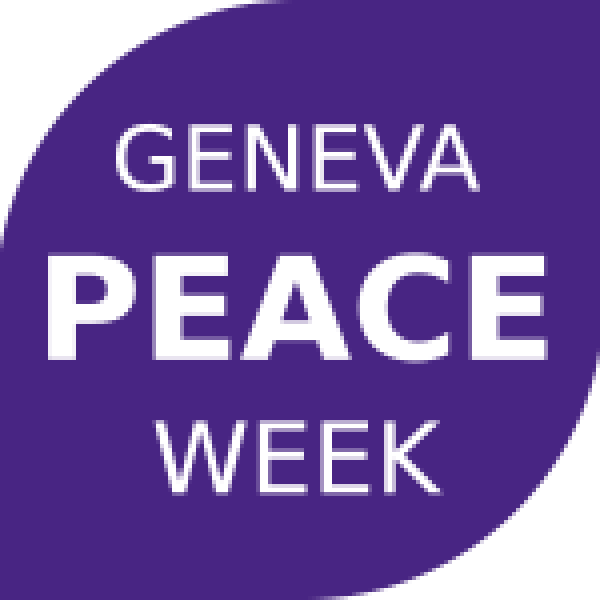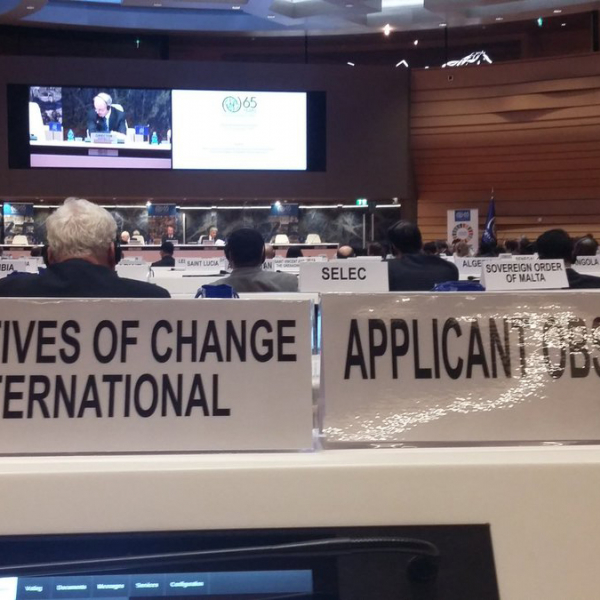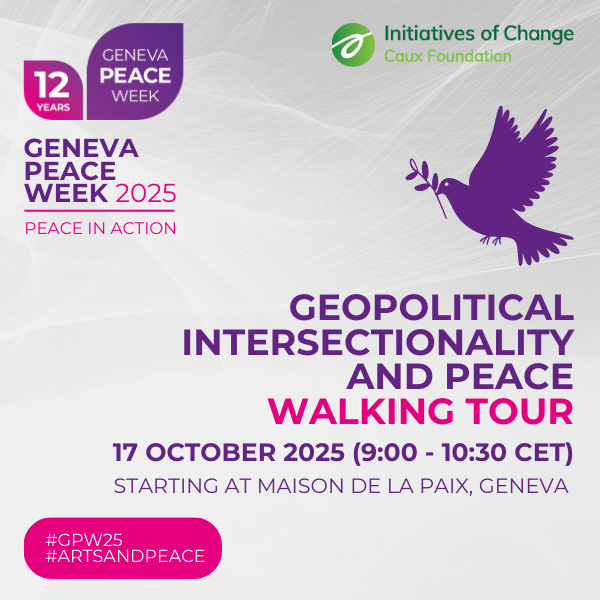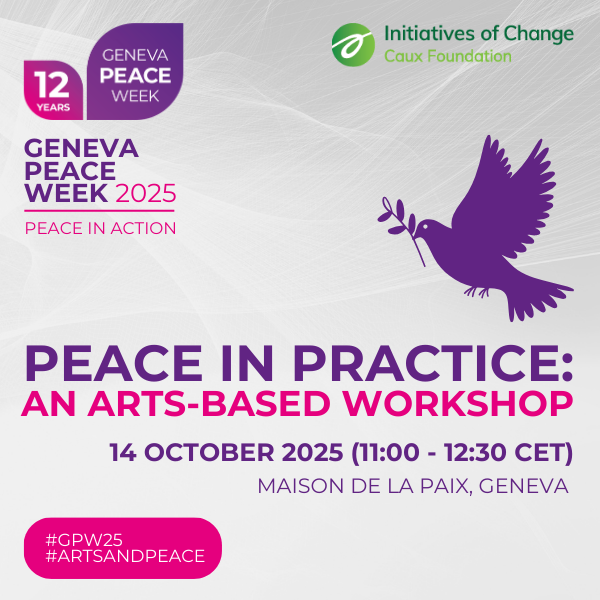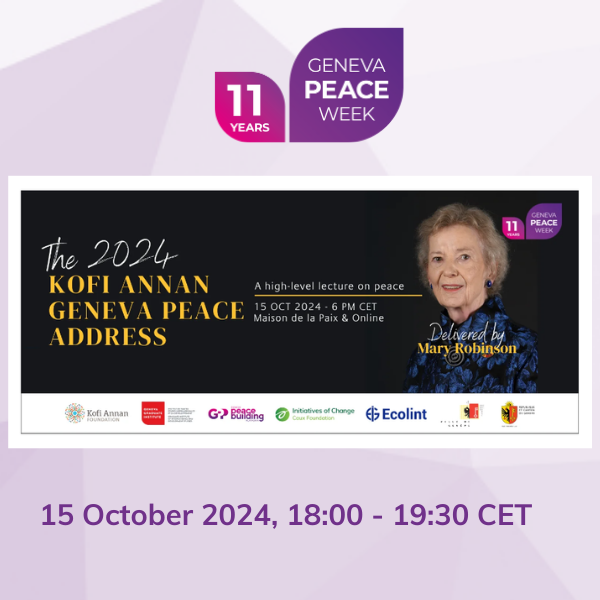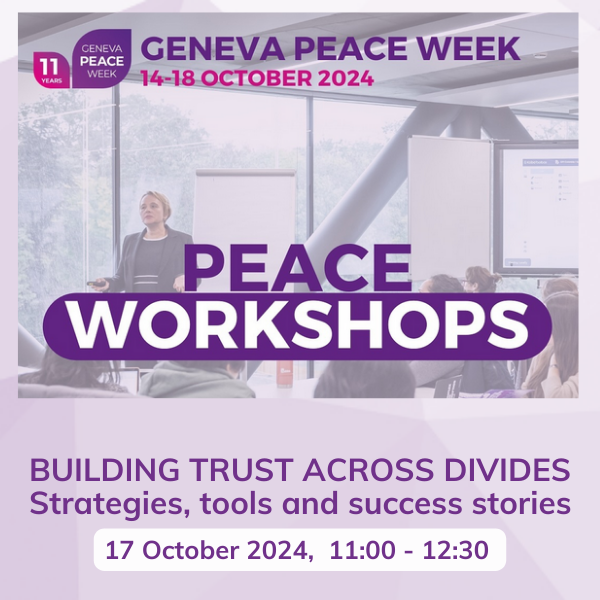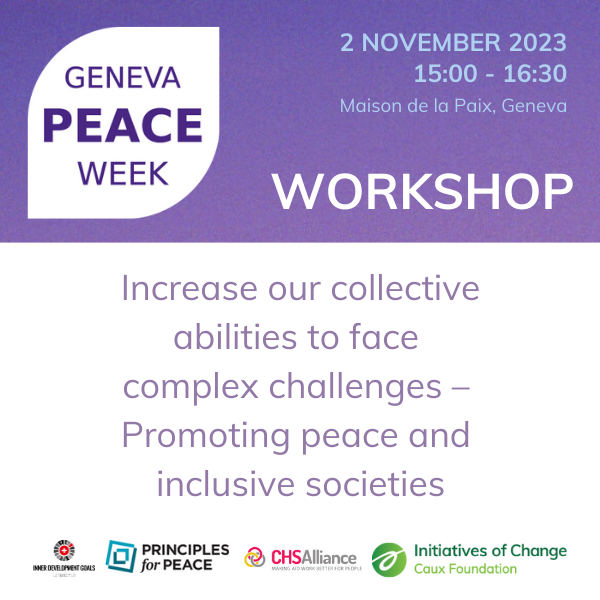A Toolbox for Peace
Geneva Peace Week 2016
30/11/2016
Peacebuilding is often seen as a sophisticated process, aimed at restoring the ways society deals with conflicts and at strengthening institutional capacities; a complex series of actions that require in-depth technical knowledge and bureaucratic maneuver abilities. But very often too, this highly institutional approach diminishes the individual role that anybody can and should play to build peace, whether it is at their family and community level or broader.
With this approach in mind, and as part of the third edition of the Geneva Peace Week, we recently co-hosted with the United Nations Library in Geneva an interactive dialogue titled “The Personal Toolbox of a Peacebuilder”. About 50 participants had the opportunity to learn from and interact with three outstanding peacebuilders, each of them with an extensive and practical experience on what it takes to engage for peace.
Jens Wilhelmsen, who spent decades working for reconciliation after World War II, said that “identifying with others is one of the preconditions for being a peacemaker”. To effectively promote and work for peace, he explained, peacebuilders should approach with “humility”, take time to listen carefully to people and to their own conscience, summon courage and have honest conversations with those they mistrust and fear, and engage with a vision: if you don’t believe things will change, they will not, he concluded.
His grandson Jonathan Nelson, who shared the stage with him, acknowledged his grandfather’s virtue of always looking at his own conduct. “My 90 year old grandfather apologized after an argument we had… it surprised me. I learned that no matter your age you should always reexamine your behavior”, he stated.
Amina Khalid, a British Somali activist working for Initiatives of Change UK, explained about the importance of community dialogues to build trust and fight against divisions in the society. “There is much disunity and dysfunction between countries, within communities and even within families… peacebuilding and reconciliation is right at the center, at the heart, of what we need today”, she asserted.
Displaying a powerful performance based on real stories and characters, Dr. Rama Mani took participants on a journey of conflicts, war and suffering that she has come across during her life as a researcher and a peacebuilder and from which she has developed her own tools. Her approach for peacebuilding remains simple, yet inspiring: witness what is, listen to people, suspend judgment, envision change, and enact transformation.
After an exchange between participants and peacebuilders, an open toolbox placed in the middle of the UN Library Room was filled with handwritten tools. Choose the most useful ones for your own peacebuilding work!
